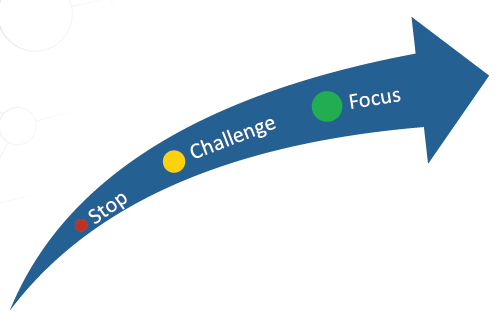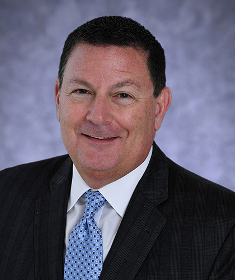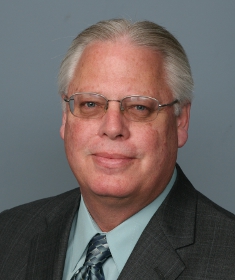Boost Your Personal Power by Challenging the Way You Think

Mid-flight, you hear a “ping” and see the “fasten seat belt” red light illuminate. Your heart rate immediately surges and your stomach sours. The pilot announces you’ll be experiencing “rough air” for the next 20 minutes. You are anxious and feeling out of control.
The person next to you appears relaxed and doesn’t even bother to look up from her laptop.
Is it silly to feel that way with turbulence promised? Are you relaxed? Anxious? That depends on what you believe.
Let’s Break It Down
How can one announcement produce two vastly different reactions? Your early warning belief system blames the pilot and it’s easy to say, “What the pilot just casually announced, like it’s no big deal, makes me very anxious.”
Your immediate reaction is typically something you cannot control. This, combined with what you tell yourself about the event, produces your feelings—in this illustration, feelings of misery and dread. You hear “rough air” and immediately tell yourself, “This is not good. What if . . .?” and your mind starts imagining the worst-case scenarios that you have no control over. The person sitting next to you believes: “Rough air? What else is new? It’s rare to have smooth sailing an entire flight. These planes are built for all weather conditions.”
Based on what you believe, it’s easy to see how emotional reactions during the same event can be vastly different from one person to the next.
To put it another way: We don’t often think about what we are thinking about.
By thinking clearly about what you are thinking about, you can think differently and control your feelings and behaviors. By thinking differently, you can challenge those beliefs that aren’t serving you and be responsible for how you feel and respond.
If you want to change how you are feeling in response to issues, decisions, and events that you will encounter as a salesperson, the crucial place to start is by controlling, challenging, and changing the way you think.
“I Feel the Way I Believe”
Personal power is the single biggest “make-or-break” factor in human performance—the factor that ultimately determines success. Beliefs are the fuel of our behavior, and there are four common beliefs that cause most of our negative feelings. Almost everyone has a propensity for at least one of these beliefs that are self-defeating, self-protecting, self-sabotaging, and energy-depleting—none of which fuels success as a sales professional.
Self-Defeating Belief #1: I Must Always Be Right
This is simply another way of thinking, “I must never be wrong.” This unchecked, self-defeating belief can show up in how you relate to your customers and build trust, or in how you listen to discover customers’ needs. If you must never be wrong, it’s almost impossible to pivot or get creative configuring your solution. It can even hinder your ability to close the sale.
If you must always be right, someone—your customer, your manager, a loved one—must be wrong.
Self-Defeating Belief #2: I Must Always Win
This is another way of thinking, “I must never lose.” It’s been said that salespeople love to win and hate to lose. Have you found yourself in hot pursuit of a deal that may be taking away from your company’s resources or may not be the best for you or your company? Has there been a time in your sales career when you wish you would have lost the deal you won?
The self-defeating blinders of “I must always win” view losing as a negative rather than a positive. Challenge your thinking about losing in a way that allows you to bounce back faster, keep the loss in perspective, and then move on.
Self-Defeating Belief #3: I Must Always Be Accepted
This is another way of thinking, “I must never be rejected,” and your belief system has taught you that everyone must always accept you or your ideas. In selling, if you make a sales call and are rejected, this belief will self-sabotage you and cause you to think, irrationally, that being rejected is a sign of failure. These self-defeating beliefs can send you into a tailspin of feeling inadequate, elevate your stress level, and make you feel like “a loser,” at best.
Why would you ever want to believe something like that?
Self-Defeating Belief #4: I Must Always Be Comfortable
This is another way of thinking, “I must never be emotionally uncomfortable.” Talk about self-protecting. This self-defeating belief brings about all types of negative feelings and anxieties and keeps you from situations that might be embarrassing, make you look foolish, or require you to ask for help. It can be life-limiting when you always need to be the expert and comfortable, rather than becoming the learner and growing, even if it’s uncomfortable.
Can you get comfortable being uncomfortable?
Bringing It Home
While these irrational beliefs may not make sense to us when we stop to think about them, we still believe one or more of them—deep down, at some level—in ways that rob us of our personal power and deplete our energy.
- Which of these four self-defeating beliefs are most familiar to you? Which one can you most relate to?
- What happens if you don’t manage your self-defeating beliefs in your customer interactions and relationships?

An Invitation
There are proven techniques that you can practice to help unlearn self-defeating beliefs—techniques like “Stop-Challenge-Focus.” You can learn to recognize words in your self-talk that deplete your personal power and choose to swap them out with power-building words. We invite you to continue to explore how you can consciously choose to respond to events—especially the challenging and important ones in your sales life—rather than letting your early warning belief systems direct you down an impossible path of always being right, never losing, always being accepted, and never feeling emotionally uncomfortable.
Do you see the effects of these self-defeating beliefs cropping up within your sales organization? Contact us to learn how we can help your sales team manage these self-defeating beliefs to improve their customer relationships and sales success.
To learn more, contact Wilson Learning at 1.800.328.7937 or complete the online form.








 Please complete this form to download Boost Your Personal Power by Challenging the Way You Think.
Please complete this form to download Boost Your Personal Power by Challenging the Way You Think.



